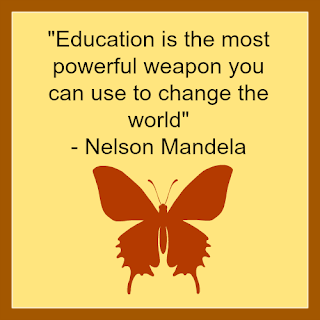Help children to read more effectively: Expand their cultural experiences of the world.
Teaching children to read fluently and with comprehension is a long, complex process that school heads and teachers need to understand. There are many factors that are involved in becoming proficient readers.
One of the factors that influences children's reading proficiency is the extent of their world knowledge. The greater the children's experiences of the world around them, the better are their chances to comprehend books more effectively.
Build children's cultural capital
Let us focus on how children's limited background knowledge blocks them from developing their reading and comprehension skills.
Children who come from poor homes, are often not exposed to a variety of experiences as children from middle class homes. Their world knowledge is generally restricted to the experiences in their neighborhoods. Teachers recognize these gaps, but they ascribe the children's lack of knowledge to laziness or an unwillingness to think.
"I was shocked when the children told me that honey comes from a bottle," said a Foundation teacher once. But, if I should ask those very children about the shebeens in the area or who fought with whom the weekend, they can give me detailed, animated descriptions."
This remark is characteristic of the kinds of comments that teachers make about children's limited general knowledge. If children don't pick up general world knowledge in their homes or in their neighbourhood, then the school should compensate via creative classroom teaching and school activities.
Teachers should work at bridging this gap if they want their children to learn better and faster. If the children don't know that bees produce honey, they should acquire this knowledge through their reading or during oral discussions in class. What we regard as common knowledge is in fact, acquired knowledge gained over the years because of our privilege and access to information. If we want children to engage our world, we need to help them.
Teachers should aim to broaden the children's view of the world by flooding them with experiences via a variety of written and audio-visual teaching material. Educational excursions to cultural sites, nature reserves, museums and other places have immense value for children who would otherwise never have these rich experiences. And, reading independently for enjoyment takes top priority as a window to the world.
When children read stories or have encounters with various experiences via other media, these experiences become part of their cultural capital. The information will be stored in their long term memory. When they read about similar experiences, they can start making the connections with the knowledge they already have. Instead of having to battle with foreign knowledge, and the language structures, they will then understand the story better, make meaningful deductions and enjoy the reading experience.
The role of the School head and the SMT to inculcate reading proficiency
What then, is the role of the school principal and the SMT to ensure that all the children at their school are improving their world knowledge? There are three points I wish to make.
Firstly, the school head and the SMT should understand how reading comprehension is dependent on the scope of children's world knowledge. The leadership team should actively encourage, monitor and build in accountability systems to measure how the school is building their children's broad knowledge base. The education district officials, particularly the subject advisers, can be asked to assist with reading comprehension coaching skills.
Secondly, the school head and the SMT should monitor the reading habits of all the children at the school. Individual children's reading should be assessed regularly, perhaps once per term. The children should read texts at their grade level to the school head and to the SMT members. This will provide the Head and the SMT with first hand information about the reality of the reading levels at their school.
Thirdly, the school head and the SMT should visit classes to see how the teaching of reading and the advocacy of reading are taking place. It should be the norm to have a well-stocked library in every classroom.
The school principal should take the lead to turn his or her school into a reading school. Parallel to this, the principal should understand what is involved in developing comprehension skills and how children can be taught to comprehend more effectively.
If the school head and the teachers do not understand that reading comprehension is a complex process, where thinking skills must be taught, the majority of their children will merely become masters at decoding texts.
The goal is to develop proficient readers; children who can critically engage texts or stories. Addressing the cultural capital gap that exists is pivotal in helping to lift the children's literacy.
What advice do you have to help schools encourage reading proficiency rather than helping children read mechanically?



Thanks for this beneficial information. Reading books is a good habit. We get to learn a lot from books. Our reading speed is also increased. You should also get your kids used to read books from the beginning. Nowadays online there are such sari websites that provide books to improve the skills of the students.
ReplyDelete